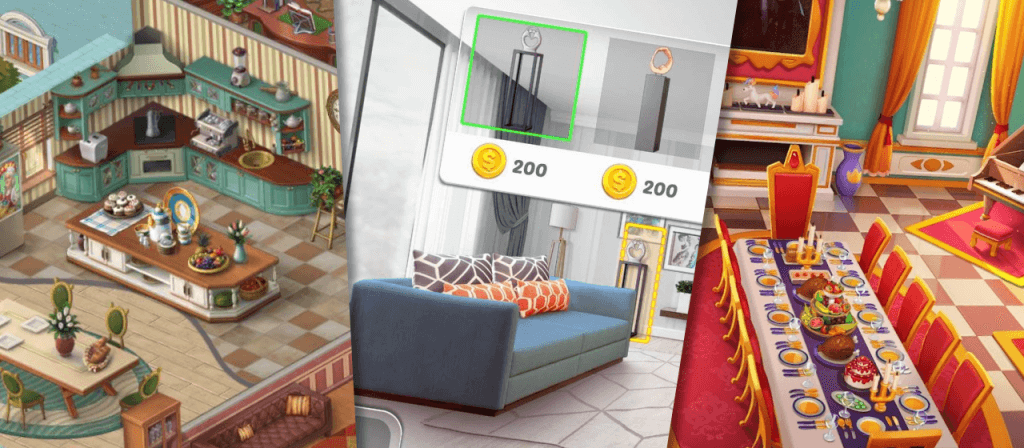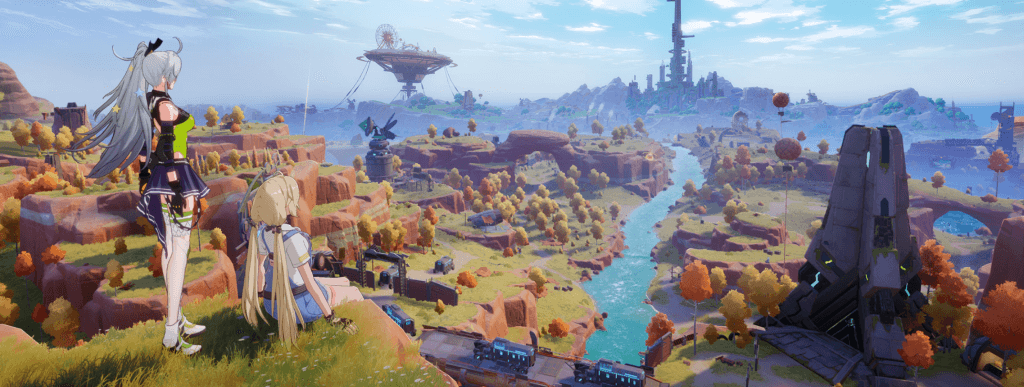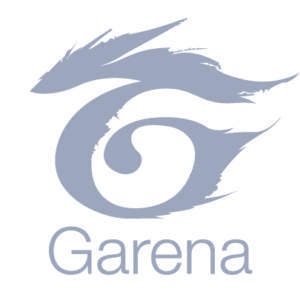In this episode of the Mobile GameDev Playbook, we’re joined by GameRefinery, a Liftoff company, analysts Erno Kiiski and Sonja Skoglund, who will be discussing seasonal events in mobile games.
![]()
![]() Spotify, BuzzSprout, TuneInRadio, iHeartRadio
Spotify, BuzzSprout, TuneInRadio, iHeartRadio
– If you enjoy the episode, remember to hit subscribe!
We will cover noteworthy events, interesting trends, and what these events may look like in the future for the three major markets – the USA, Japan, and China.
You can also watch the episode on YouTube:
Topics we will cover in this episode:
- Introduction
- Different types of seasonal events
- What seasonal events look like in the Japanese market
- Seasonal events: if you’re not doing them, your competitors are
- Can there be too many seasonal events?
- Finding opportunities in smaller seasonal events
- Using seasonal events to bring diversity to your game
- How to fit seasonal events into your existing event calendar
Read transcript
Introduction
[00:00:02] Jon Jordan: Hello, and welcome to the Mobile GameDev Playbook. Thanks for tuning in for another episode. This podcast is about what makes a great mobile game, what is and isn’t working for mobile game designers, and the latest trends. I’m Jon Jordan, joining me today; we have two experts. We have Erno Kiiski, the Chief Game Analyst at GameRefinery by Liftoff. How’s it going, Erno?
[00:00:24] Erno Kiiski: Hi. Hi, Jon. It’s going great. How are you?
[00:00:26] Jon: Good. Yes, good. Good to have you back, and very excited. We have Sonja Skoglund, a Game Analyst at GameRefinery by Liftoff, specializing at least in today’s episode on Japan. First time on, Sonja, you excited?
[00:00:41] Sonja Skoglund: Oh, I’m very excited. Thanks for having me.
[00:00:43] Jon: Good, good. Always good to have some new blood on there. In this episode, we will discuss seasonal events in free-to-play mobile games. We spend a lot of time talking about live ops, and there are lots of collaborations and that sort of thing. We’ve done that recently in some of our episodes. Seasonal events are a subset of that and come with interesting challenges and exciting opportunities. That’s what we’re going to focus on today, and, Erno, you’re going to kick us off. You’ve been looking at this in some detail. What do we need to consider from a high level when considering seasonal events in free-to-play mobile games?
Different types of seasonal events
[00:01:23] Erno: Yes, sure. We start by just looking at what events we have, especially nowadays more and more global games, totally global from different cultures and so on. There is almost some seasonal event going somewhere all the time. Of course, there are the big ones, especially for the western market – Christmas, New Year, and Halloween, which are classically the big ones. But nowadays, if you look, in more and more of these games, there’s some kind of event running. Some kind of seasonality can be utilized and tap into a specific topic. Many places to dig for more, get inspiration or use as a part of your framework. Then if you go to the actual implementation side and how these events are. If you look at seasonal events like Jon mentioned in the intro, it’s pretty much like many games, especially in the West; they are not necessarily, in that sense, super unique or separate from your game’s actual event framework. The most common cases are a suitable seasonality for a specific event type running in your game. Or you have an event loop that you are using or specific types of events that are constantly on. But now the skin, the event’s theme, is just concerning whatever the season is.
Suppose you start on the high level of what kind of events, especially now talking about in the Western point of view first. Usually, the simplest one is changing your UI to represent seasonal festivities. Maybe during Christmas time, your menu looks like there’s winter and Santa Claus somewhere. The simplest format of connecting the current season and the current vibe into your game. Then maybe the next step from there is just offering event-related offers.
You have IAP offers, bundles like the UX of that bundle or UI of that bundle is done with a specific seasonality. Depending on the game type, there might be some differences, for example, skins that are now Halloween-themed. Then I would say the third step from there is the proper event. There are some playable content, whatever tasks, rewards, and usually all of these previous aspects having offers, having the UI changes and stuff like that are part of that. I would say that is the basic way that these events are run.
Then if we look at what kind of events there are a little more in-depth, I would say the most common nowadays is this podcast’s favorite term, battle passes. Suppose you look at the modern mobile game market, the most common way to bring seasonality, especially on the casual market, is by teaming that season’s one-month battle passes with a specific winter team, Christmas team, New Year team, or Lunar New Year team.
Your battle pass season is now teamed with a specific team, like Gardenscapes, Angry Birds Dream Blast, Redecor, and Klondike Adventures, to name a few. That’s how they use seasonality. Then, for example, if the game has skins, they might have one cosmetic item regarding that team and seasonality and so on. Then the same mentality goes to all of the other different types of events that you have running in your game. Of course, this depends so heavily on your sub-genre type of game. If you look at the casual market as an example, a lot of the Western market, the US market especially, is based on casual games, puzzle games and so on. You have your common event types there.
For example, I would give the scapes games and these Match3 meta games, one of the common event types is to have these currency events. They are that you just pay your usual levels, earn an event currency, which you can use to purchase event items from the store, and then use those to decorate your home or garden or that metal layer you have in the game – A common way to bring seasonality into the games.
Then we might have a separate event area or island with a seasonal team. This sometimes occurs in Match3 games with that meta, especially Match3 games like EverMerge and these types of games where you have an area you’re building. Then often, how they run their events is that you have a separate event economy, separate event island, and then that is Christmas Island, for example, for that period, and you use that.
Then, for example, Islers are one genre; that’s how they operate live ops or live events. The most common way is to have a separate Isler economy, which is separate from your main progression economy. Still, you have an event island, and okay, now we have a New Year Island. I would say those are some of the key ways. In the West, the most common way to bring seasonality is to adjust, reskin, and utilize your already existing event frameworks and event types that you are running in the game. Then just to be honest, use the seasonality to highlight that battle pass season or that specific type of event.
[00:07:59] Jon: Good. It is interesting, I suppose, how there’s all this stuff going on in these games already, and they always sort of need to have this cadence of change going on there. Actually, over time, it doesn’t make sense to put seasons as part of that, and sometimes you have these IP collaborations, which can also be mixed up. I guess we’ll get into a bit more detail about what seasonal events are somewhat better than others or something a bit about that.
I mean, Sonja, how has it worked in Japan? Japan has, in the history of gaming, been very, very focused on mobile live ops. That’s where a lot of that best practice and stuff came from. Japan has a different calendar and probably loads of events I’ve never even heard of. Can you give us a flavor of what seasonal events look like for the Japanese market and which are some of their bigger events?
What seasonal events look like in the Japanese market
[00:08:52] Sonja: Yes, sure. There are a couple of differences to the Western market. We see a lot of the same stuff that Erno was talking about utilizing an existing framework and then just putting on the seasonal spin on everything you’re doing in your regular events. In addition to that, there are a couple of differences. I think the major points, I believe, are one as you said that the major holidays are quite different.
Some are unique or unknown to most of the western world, and some, like the New Year, are the same everywhere. New Year is celebrated everywhere, but the traditions are quite different. Then another thing is that the biggest events in general, I feel in the Japanese markets, are focused around these big holidays, and the biggest ones are New Year’s and Golden Week. These are two holidays that are centralized. Everybody has time off from school and work. This time off is very precious and rare.
It’s pretty easy because it’s so centralized; it’s pretty easy to focus your event and all of your resources as a developer on those periods because you will get centralized revenue from them. And also because many people have free time and will be playing. They are also expecting that there is going to be a big event during Golden Week, and they’re already used to these annual big seasonal events.
[00:11:28] Jon: Can you explain what Golden Week is and when in the year it is? I don’t know. I’ve heard of it, but I don’t know.
[00:11:34] Sonja: Yes, sorry. Of course. Yes, so Golden Week is a series of three individual days or days off and public holidays. I think it changes a little bit by the year, but it’s somewhere between the end of April and the beginning of May. It’s about a week’s national holiday.
[00:12:08] Erno: Can I ask, because I don’t know, where does it come from? What’s the heritage of Golden Week? Why are they celebrating it?
[00:12:18] Sonja: Well, there are these, as I said, separate individual days that each have a different cause to celebrate. One is, I think, Children’s Day, and so on. It’s a cluster of small national holidays.
Seasonal events: if you’re not doing them, your competitors are
[00:12:44] Jon: It’s an interesting point you brought up there, which is why seasonal days are important for all games and services to think about. However, some of them are not so much. Halloween is a cultural event that, over the last 20 years to become a global event. Then you have these more embedded into society where people are on holiday.
That’s a key thing, before games, because generally, when people are on holiday, they have more free time, which means they have more time to play games. This is a critical financial opportunity to generate more money off your players because your players aren’t at work.
Maybe if they’re younger children, they’re sitting around boring family environments going, “This is boring. I don’t want to be here.” They’re playing games more. This is an interesting monetization aspect of seasonal events you can get from live ops. Still, these are pretty big opportunities, aren’t they, to be able to get people spending and then maybe they’ve saved up money. If it’s a holiday season, I suppose it’s always famously put on Boxing Day, this massive spike of new iPhones or new devices coming on board and people spending there.
Quite interesting. That’s why game developers need to be doing it because if they’re not doing it, then their competitors are. Everyone doing it probably means no one gets a competitive advantage, but you’re losing out there if you’re not doing it.
[00:14:31] Erno: Yes, and I would say it’s also quite interesting, especially I would say as I mentioned, most of the games that are big in the West, they seem to be following just the framework, and it’s quite, of course, it’s in terms of resources, it all makes sense. Especially those highly engaged games, you need to be highly engaged when you’re playing the game. You actively have to play the game, and there’s not that kind of a grind.
Just an example that comes to my mind is Genshin Impact, which is this massive action RPG game that doesn’t have any automatization options and so on. Then when tying this to the areas of the year people have the most time, Genshin Impact always has the biggest events easily. They don’t always have a big event. But the biggest event of the year, at least for the past couple of years, has always been live during the summer. That’s the biggest event; they always bring the most content. It’s crazy the Live ops. Anyway, their most significant spike of stuff to do happens during the summer when people are on holiday.
Can there be too many seasonal events?
[00:15:53] Jon: I wonder if you go through some seasonal things. We’ve mentioned Chinese New Year, which is a bit different to Western New Year, or like a month out, but I guess people know how to deal with those. Can there be too many seasonal events? If you’re a Chinese game, you’re probably going to go for the Chinese New Year as a seasonal event. Would those be too close if you did New Year, like Western New Year and then Chinese New Year? Do you think there are only so many season events you can do? Do all the other stuff that’s going on in games as well?
[00:16:33] Erno: Well, I can start this one again; Sonja, you can continue from there, but I think it’s been interesting to see, especially the Lunar New Year. It also goes a bit hand in hand. From my point of view here in Finland, the Lunar New Year outside of games wasn’t that big of a thing five or six years ago. But if you look nowadays, look, there are a lot of celebrations. Even in Finland, in Helsinki, there are Lunar New Year celebrations, and you can see them in the city. You can see it much more than what you used to.
I think it also goes hand in hand that these events become more and more relevant or visible in the games in the different geography and so on. At least Lunar New Year is one of the bigger ones. Almost all the games nowadays have some Lunar New Year events. Yes, as I mentioned, there are many different ways, and something always happens in some cultures. So a lot to choose from for sure.
[00:17:53] Sonja: Yes. From the Japan team, we often joke about how it seems the Japanese will grasp on any possibility to celebrate, give some offer, or provide logging bonuses. We joke about these half-year anniversaries or quarter-year anniversaries of the game. At least in the Japanese market, it feels like the users are used to or are expecting these spikes in content and expecting things to be implemented seasonally or in an event format. That’s the way I feel. From my experience in the Japanese market, I don’t think there can be too many events.
Finding opportunities in smaller seasonal events
[00:19:02] Jon: Maybe the Japanese market is very, as you say, very focused on those frequencies of events, isn’t it? Going back to what you were saying, Erno is maybe for games; the seasonal events that work well and grow over time have obvious cultural resonance, which can be demonstrated in games. Chinese New Year or Chinese Lunar New Year is because every year, it changes. There’s a different animal. You have a pretty strong, this is the year of the, whatever it is, ox, tiger, rat, it’s a different theme every year. In contrast, Christmas is difficult because Christmas is Father Christmas and snow, which is the same every year. We know what it is, but it’s not necessarily exhilarating in a way that’s a different animal for Chinese New Year could be.
[00:19:56] Erno: Yes, it’s quite a good quality in that sense, especially if you think about we’re talking about games anyways, and then you need to think about different themes and different ways to create the event or make it interesting or make different types of skins or whatever. With the Chinese New Year, it’s the ox skins for your characters or another rat skin. Especially that one, it suits as an event for mobile games. It’s a good point.
[00:20:31] Jon: I think a similar thing; I think we mentioned Halloween clearly works well thematically for lots of games as well because it has, as I say, in color scheme, but then there’s quite a broad mix of stuff you can do within Halloween. You have pumpkins and stuff, but it has quite a range of characters you could be putting into games, and so any game with combat elements or stuff like that. Even in Match 3 games, you could have done that. It works out well.
I think that’s one of the reasons you have these local events that work well globally: they’re so flexible in how you can do them. In contrast, there’s another one we had here. Maybe up for discussion, I think it’s something to talk about here, but something like April Fools’ Day is culturally quite interesting, but if you said, what does April Fools’ Day look like, then there’s not any obvious thing we would say, would there? It’s quite hard to implement April Fools’ Day in a game.
[00:21:33] Erno: That’s true, but I think some of our team wrote a blog post about different implementations for April Fools’ Day. It’s an event. Usually, the events are not big, but it allows for some bizarre wild stuff because the day is like that; you need to fool someone differently. That gives you creative freedom for that one day, which is quite interesting. It’s not so restrictive, maybe like Christmas. It’s always that snow and Santa, like you mentioned.
[00:22:13] Sonja: One thing that came to mind about this was that, as you said, it’s difficult to say what April fools look like. There aren’t these material traditions or objects that you can build the event around. My third point from the differences from the East is this material side and the vibrant material and concrete traditions that people associate with these holidays and events. People do many things or use them in real life, like many objects you can utilize to build a completely separate event area.
I feel that in the East, this may be one reason they tend to do this more in the East. They tend to build unique playable content around the big events. One example of this was the Fireworks Festival, a tradition in August where people go to their local village area and enjoy a fireworks spectacle, maybe organized by the city.
This is in real life and because it’s in August and it’s very hot. People dress in yukatas, that’s traditional Japanese summer clothing. Part of the tradition is that the community becomes very active, and they have these booths where you can buy food and seasonal food or play small games, like fish, small items from a fake pond or whatever. Then at the end of the evening, you gaze at the fireworks with your friends and family. There’s a lot to do in real life, a lot to buy, and a lot to use as material objects. Those may be easier to transform into an event space with all these details. The yukatas work as skins, obviously, or accessories or whatever.
[00:25:11] Jon: Interestingly, you mentioned fireworks there because, in the UK, we have Bonfire Night or Guy Fawkes, which is just after Halloween. One of the interesting ones where it used to be quite prominent in the UK and still is in various places, but Halloween overshadowed it. Equally, if there’s a UK-based game, you could imagine this V for Vendetta look sculpted from our culture there. There is an opportunity there.
I guess as some of these are the cultural, seasonal events that everyone in the world knows, that still provides the opportunity for people to use some of these more local ones, but use that as differentiation to other games. The problem is that it would work well for the UK market, which is fairly small, but would people in North America know about Guy Fawkes Night? I guess it’s trying to see, play around, see how that works with your game and where your audience is. Another thing that brings me onto is that I think these can be powerful for retention, monetization of existing audiences. Do we believe these are useful for gaining new audiences? I guess with collaborations, that’s a thing where you’re bringing in a new IP, and you can use that to market the existing game and bring in new people because, obviously, you always need to bring in new people into a game. Do we think seasonal events work for that, or because all games are doing them, it’s tough to get a competitive advantage there? What do you think, Erno?
Using seasonal events to bring diversity to your game
[00:26:49] Erno: Yes, I guess, in the big picture, it’s probably like that. It’s pretty different in that sense, like, collaborations, like you mentioned. However, as mentioned in the earlier discussion, there is more and more of this diversity of different cultures and cultural seasons that you bring to your game. Let’s say you would have Ramadan, for example. A Ramadan event, and then you are a person who celebrates that, and you see that “Okay, this game is included in that as part of their event framework.”
For example, I know that Brawl Stars from Supercell is widely bringing different seasonal events and cultures and showcasing that to specific audiences. It might help to increase that sense of belonging. Or especially if it’s a game, as per your living abroad, your seasonal event is also celebrated in the US version of the game. I would say to some extent, but I don’t think the impact or the way to use it for new user acquisition is not as significant as for collaboration, for example.
[00:28:13] Jon: It depends a little bit on the game. In certain games, one that comes to mind is Subway Surfers, which changes its location every month. If you already have that vibe, you could play the seasonal events, which becomes another marketing thing because you can imagine the different things. Other games would do Rio Carnival, where you can imagine, we’re going to Rio. It does work, but I guess that’s harder to do, and it’s more specific on the actual game title.
Sonja, you said there couldn’t be too many seasonal events in Japan. But in general, is there success in these events, do we think? There can only be so many because of all these other collaborations and limited edition events. Are we getting peak seasonal game events, or is that too pessimistic?
How to fit seasonal events into your existing event calendar
[00:29:17] Sonja: That’s a good question. I guess it’s some balance between having some seasons where seasonal events are back to back. For example, if you think about Christmas, it might start already, like Halloween in the autumn and then transform into Christmas early on. I guess many Christmas events are very long-lasting, and then straight after that comes New Year, and then, depending the on the year, the Lunar New Year isn’t so far behind. Maybe winter is when there are holidays back to back, but there’s also potential to have the events back to back, and people are probably expecting that also. Then maybe summertime people have other stuff to do as well.
[00:30:22] Erno: I guess you know, what I talked about, like, in the very beginning about the different levels of events that you can have on how different companies use the various seasonal events to varying degrees of events, and so on. If you have a big Christmas or New Year event but for minor seasonal stuff, for example, Oktoberfest or something like that, then you have an IAP bundle for that, not that big of an event for tying to different stuff.
That’s, I think, like Brawl Stars, for example, what I mentioned earlier, they might have specific skin for minor seasonal stuff, but then they have formal events for Christmas and playable mode for like a Christmas mode and stuff like that. Different varieties of how deep your events are and how deep seasonal stuff you’re building for different types of events. It will probably need testing and checking out and trying out “is this resonating for my audience this type of a seasonal event, or is it not? Or should we just have an offer on it or something like that as an example?”.
[00:31:40] Sonja: Then also, when we looked at collaborations and seasonal events together, it seemed that some of the examples that we found were examples where there were these bigger seasonal events such as Christmas, for example, and then a smaller collaboration put together with that which had a shorter duration, but which is probably utilizing the users that are already there because of Christmas. Or might be people might come to the game to play the collaboration and then continue the longer-lasting Christmas events. Things like that.
[00:32:23] Jon: That’s a good point. Good. I have to say the one thing that annoys me about seasonal events, mainly about Christmas ones, is when you have a Christmas event and then it’s still mid-January, and the Christmas skins are still there. It’s like, “No, it’s not Christmas anymore.”. Maybe that’s just me being a grumpy old man.
[00:32:42] Erno: Well, it’s the same, especially as Sonja mentioned that it’s already Christmas events that start coming from Halloween. If you look at start dates, shops are starting to play Christmas songs early in the real world.
[00:32:59] Jon: Yes, exactly, mirroring real life. Lovely. Good. Thank you very much, Erno and Sonja, for your expertise.
[00:33:08] Erno: Thank you.
[00:33:09] Sonja: Thank you.
[00:33:09] Jon: Sonja, for coming on for the first time. I hope you enjoyed it, so come back.
[00:33:14] Sonja: Definitely. Thank you.
[00:33:15] Jon: Thank you for watching and listening however you have been consuming the podcast. Remember, in every episode, we are talking about the mobile games industry, the most significant part of the $200 billion annual games industry. It is a fascinating area, really fast-moving. Some of these enormous billion-dollar games are global in the audience and fascinating. I hope you subscribe to the channel and come back next time to see what we’re talking about. See you next time.





















